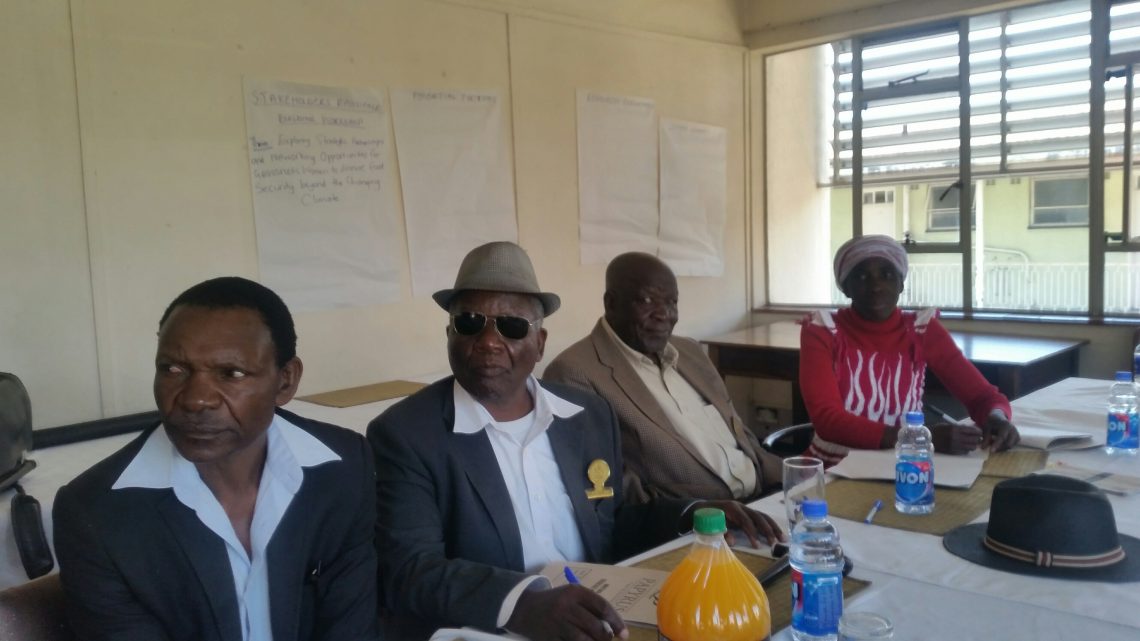The Zimbabwe Parents of Handicapped Children Association (ZPHCA) in partnership with Huairou Commission and Swedish International Development Agency (SIDA) is implementing the resilience building project to initiate innovative and sustainable grassroots women-led livelihoods projects to ensure food security beyond the changing climates.
Speaking at a workshop in Harare on 29 May 2018 on exploring strategic partnerships and networking opportunities for grassroots women to ensure food security beyond Zimbabwe changing climates, Theresa Makwara the ZPHCA Coordinator said she was happy to be working directly with 100 Grassroots Women across Harare, Chitungwiza, Dema Rural, Epworth and Domboshava Communities replicating the ZPHCA Resilience Building Model.
“To date, we have implemented a number of resilience building projects. These include vegetable gardening projects; 10 internal savings and credit schemes; food production and processing; produce value addition and marketing; water resources management; and production of drought resistance small grains,” Makwara said.
She appealed to various resourceful stakeholders to come aboard and partner ZPHCA in its efforts to transform local economies from being agro-based economies to women led cash-based resilience economies.
Among the stakeholders represented was the Zimbabwe National Farmers’ Union led by its Edward Dune, the Chief Executive Officer who encouraged farmers to take farming as a viable business.
Headman Tendai Gilbert Mungate from Domboshava said the women’s resilience building programme was an eye-opener.
“From this meeting, I have realised that landslide that led to the falling of rocks that destroyed homes and killed people in the Musana and Chinamhora area was a result of climate change. As a headman, I encourage my subjects to build houses far from mountains to gurad against such disasters especially when we receive lots of rains,” Headman Mugate said.
He praised Village Head Mafuriranwa Nyakudya for setting aside land for women to practice horticulture but discouraged people in communal lands from building on wetlands since the practice had led to a reduction of agricultural products like rice that are gown in wetlands.
The Grassroots Women Resilience Building Livelihoods Project has grown steadily over the years. The Project implementation started in Harare and Domboshawa. However, over the years the resilience building projects have been replicated in Chitungwiza, Epworth and Dema Rural.
Currently grassroots women from various surrounding communities have been coming and joining the growing Resilience Building Movement in Zimbabwe in the wake of the recurrent climate change induced droughts and failed harvests.
Upon joining the Resilience Building Movement, training workshops for grassroots women covering climate change, disaster risk reduction, resilience building projects management, leadership, peer education and information exchange are conducted for women.
Over the years grassroots women implementing Resilience Building Projects have managed to achieve great results in spite of the vast challenges they came across.
Chenghetai Katsande, the Chairperson of the Domboshava women’s climate resilience building initiative said the project had improved food security within grassroots women led families and their communities through the various vegetable gardening projects
“As grassroots women, we have improved our economic empowerment status and financial independence through the improved income from the sale of the vegetable garden produce. This has cascaded to improved health and nutrition of our families.
“I am also glad to reveal that this has improved food quality and quantity at family and community level. Unlike in the past, we as women are taking up community leadership roles in these farming projects. Climate change resilience building awareness amongst communities has vastly increased as a result of community education by Grassroots Women Resilience Building Trained Peer Educators,” Katsande said.
In addition, grassroots women are now accessing cheap loans for their small businesses courtesy of the Resilience Building Internal Credit and Savings Clubs. They are now diversifying and expanding their Resilience Building Projects to include food processing and value addition.
